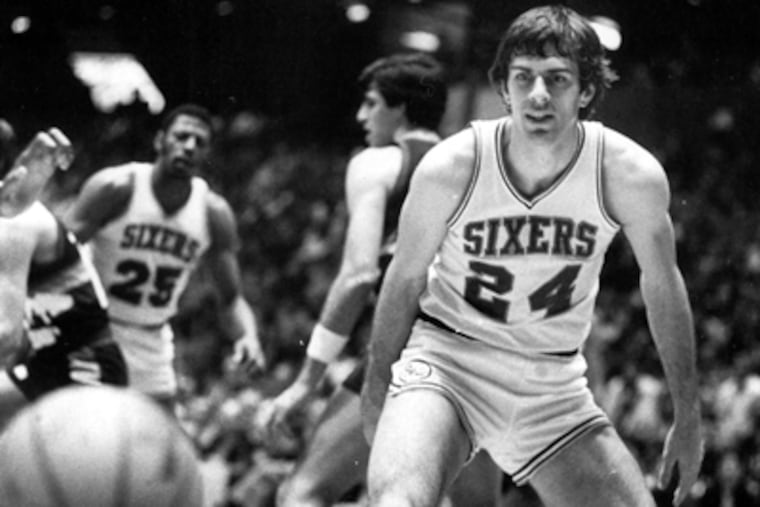Defense put Bobby Jones on 1972 Olympic basketball team
LEXINGTON, Ky. - Bobby Jones enjoyed a stellar 12-year professional basketball career that included eight seasons, two all-star berths and one championship with the 76ers. But he earned his first major exposure as a member of the 1972 U.S. Olympic men's basketball team.

LEXINGTON, Ky. - Bobby Jones enjoyed a stellar 12-year professional basketball career that included eight seasons, two all-star berths and one championship with the 76ers. But he earned his first major exposure as a member of the 1972 U.S. Olympic men's basketball team.
And of the 12 members, Jones was among the least likely to earn a spot - because he was not initially invited to try out.
Back then, the team was made up of college players, and 59 participated in two weeks of Olympic trials at the U.S. Air Force Academy in Colorado Springs, Colo.
Then, one day, while in summer school at the University of North Carolina, Jones was tracked down by Tar Heels coach Dean Smith.
"Coach Smith said some of the guys are protesting the war and declining invitations, and I think I could get you an invitation if you want to go there for two weeks and get some good experience," Jones recalled last week at the 40-year reunion for the 1972 Olympic team.
The 1972 team earned a silver medal after the controversial 51-50 defeat to Russia in the championship game. The final three seconds were played three times, and Russia finally scored the winning layup on the third try. The U.S. players never accepted their silver medals in protest.
Jones, who was entering his junior year at North Carolina, decided to drop out of summer school and give it a try. And when he arrived, he was assigned to a team that was coached by Bobby Knight, then the head coach at Indiana. College coaches were helping with the Olympic tryouts, and Knight was a close friend of '72 Olympic coach Hank Iba.
"Bobby Knight said to look at this kid even though I couldn't score well," Jones said. "Coach Iba was a defensive guy, and I kind of feel that is how I made the team - through defense."
Jones, now 60, enjoyed the two weeks of tryouts but got much more than what he bargained for.
"I was happy to be there, and when they announced the draw of guys, I was there, and I ended up starting," Jones said.
He started eight of the nine games, missing one with a finger injury.
"Even if I knew it would happen the same way I would do it again," Jones said. "Being able to represent your country was really special."
So was playing for the Sixers, according to Jones, who was dealt from Denver to Philadelphia in 1978.
Jones brought a defensive mentality to the Sixers and was a first-team all-NBA defensive player six times and second-team once during his eight seasons. When the Sixers won the NBA title in 1983, Jones won the league's sixth man of the year award. The key to winning the title, Jones said, was acquiring Moses Malone before the season, the final piece to the championship puzzle.
"Moses came in, and even though it was his first year, the chemistry was there," Jones said. "We knew what he was going to do, and he knew what we were going to do, and it just clicked and was such a fun year."
Jones and his wife, Tess, have three children and three grandchildren, and he is still involved in basketball, coaching a Christian middle-school team. He said that the reunion, which was the first time all 12 players had been together since the Olympics, was special. Most of all, he admired that his Olympic teammates have stuck to their principles about not accepting the silver medal.
"Somebody might say let's settle for the medal and our country has gotten to the point where we do settle and let people step on us and push us," Jones said. "We couldn't do a lot, but we didn't want to accept something that wasn't ours."